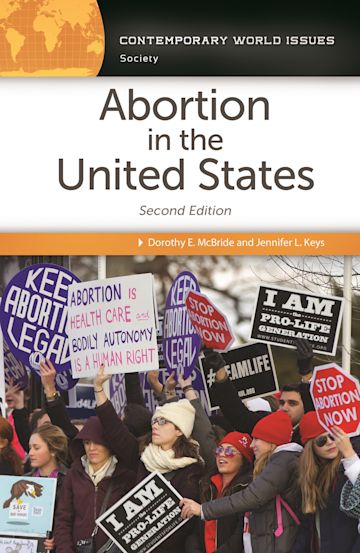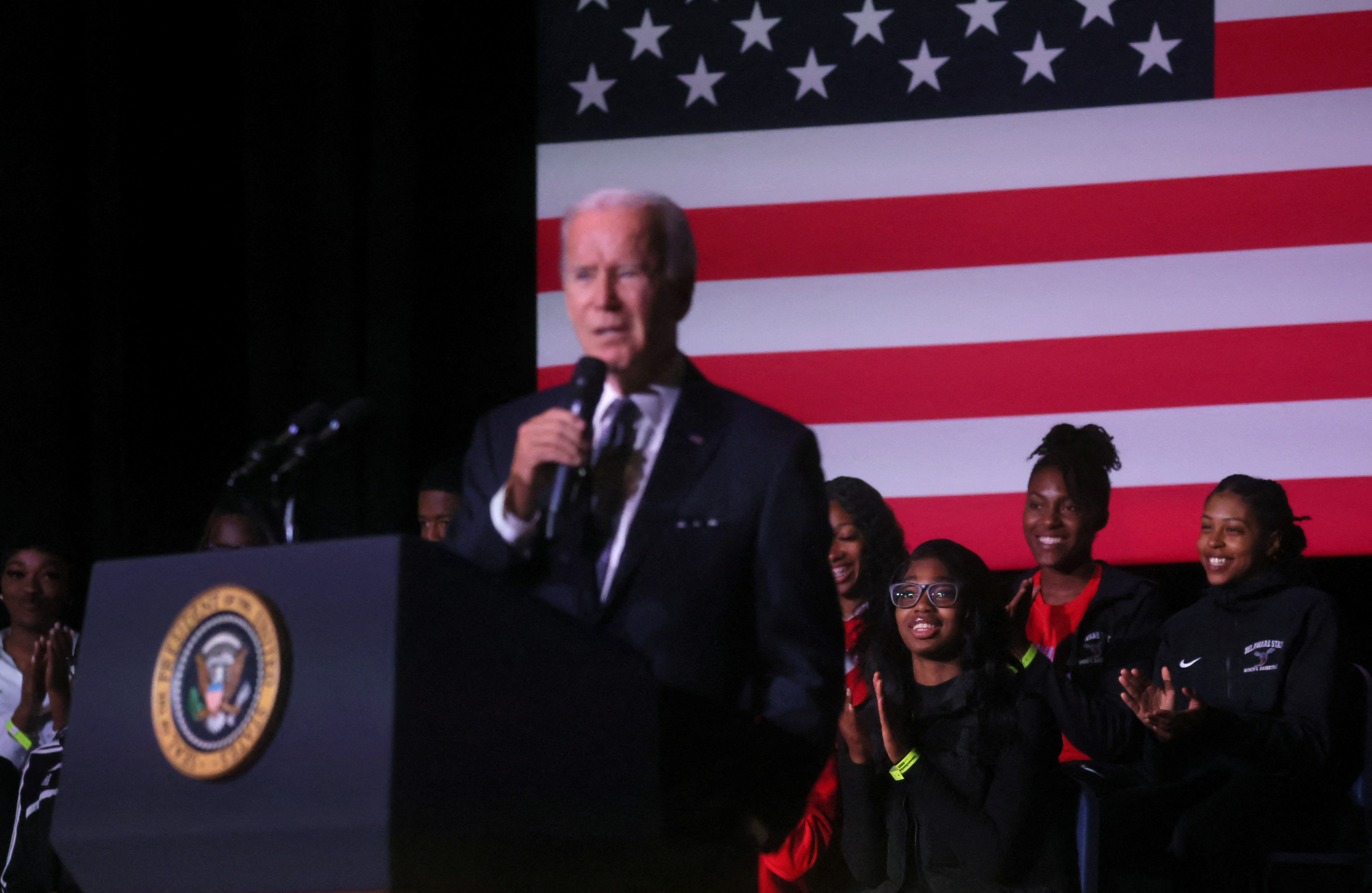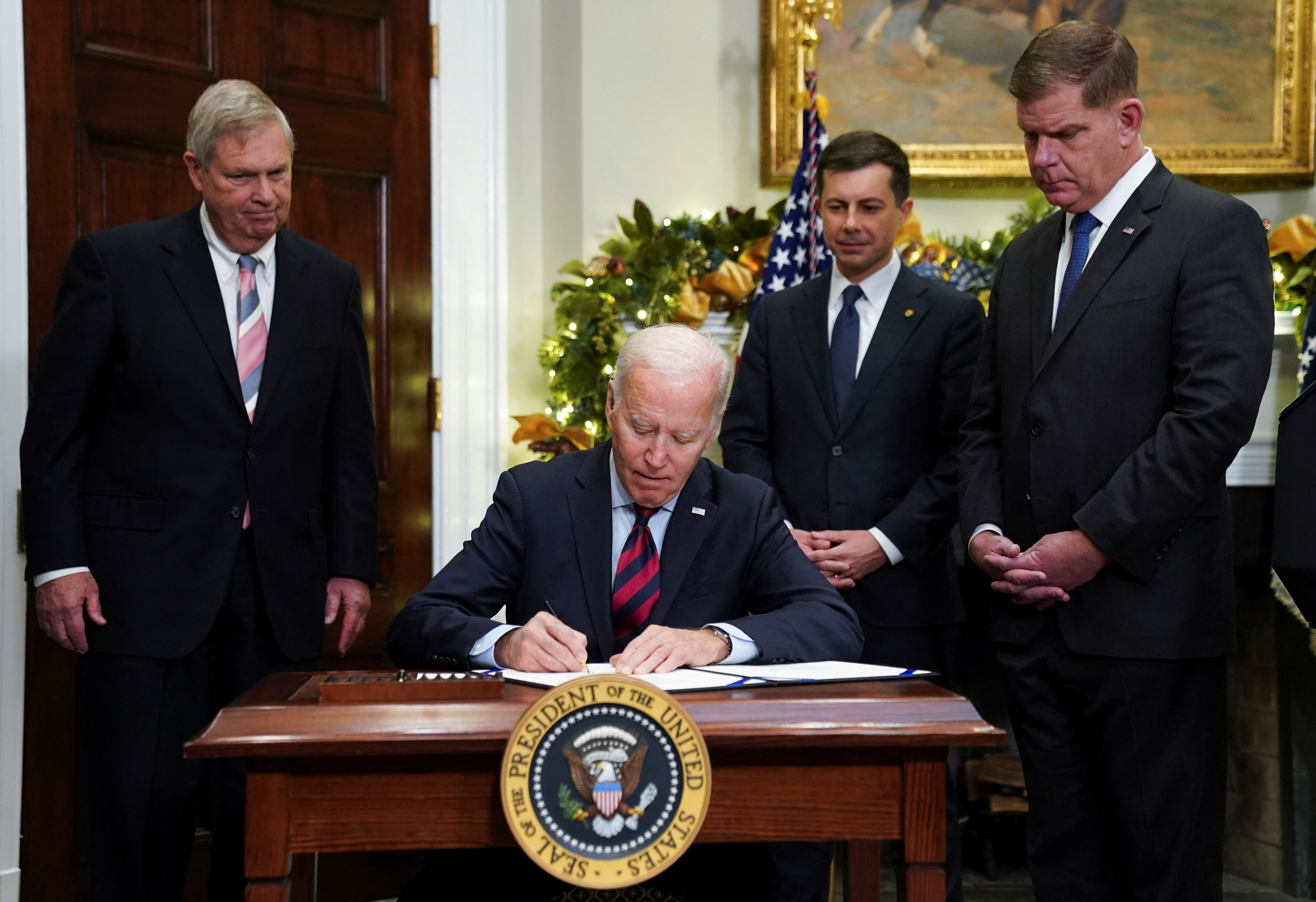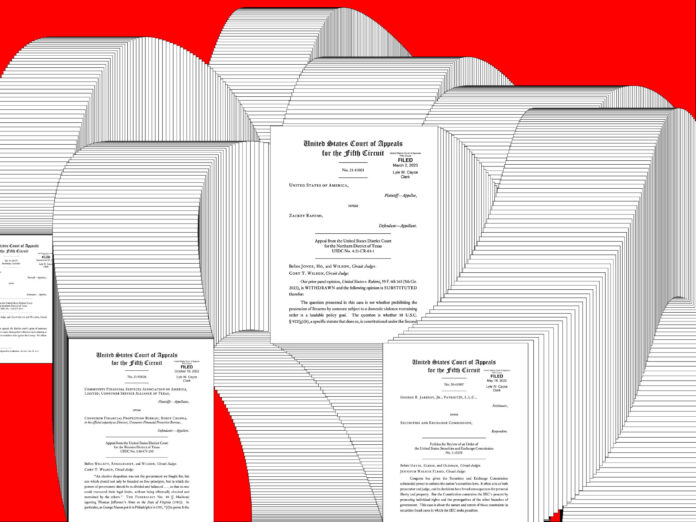No, Congress does not have the power to make abortion legal. The Constitution limits Congress’s powers, and making abortions legal is not one of them.
The authority to regulate abortion is returned to the people and their elected representatives, as stated in the Dobbs v. Jackson case. Codification refers to arranging laws into a systematic code and does not create new laws. While Congress has the authority to regulate abortion, it does not have the power to make it legal.
Additionally, under the Tenth Amendment, Congress is not constitutionally authorized to prescribe a national abortion regimen. Therefore, Congress cannot legalize abortion unless there is a significant change in the interpretation of the Constitution by the Supreme Court.

Credit: www.bloomsbury.com
Understanding Congressional Power
When it comes to making abortion legal, it is essential to understand the power and limitations of the United States Congress. Under our system of government, the states are the basic source of lawmaking, and Congress is limited to the powers specifically enumerated in the Constitution.
Enumerated Powers
The powers granted to Congress in the Constitution are significant, but they are far from unlimited. Congress does not have the authority to make abortions legal through its enumerated powers. These powers include regulating interstate commerce, establishing federal courts, and raising an army, among others. However, the power to legalize or ban abortion is not among them.
According to the landmark Supreme Court case Dobbs v. Jackson, the Constitution does not confer a right to abortion, and the authority to regulate abortion is “returned to the people and their elected representatives”. This means that the decision-making power regarding abortion rests with each state and the elected officials representing the people of that state.
Limitations On Congressional Power
While Congress has specific powers granted to it by the Constitution, there are also limitations on its power. These limitations ensure that the authority to regulate certain aspects, such as abortion, remains with the states and their elected representatives.
The necessary and proper clause of the Constitution, also known as the elastic clause, grants Congress the power to make laws that are necessary and proper for carrying out its enumerated powers. However, legal scholars question whether this clause allows Congress to regulate abortion, as it is not directly linked to any of Congress’s enumerated powers.
In addition to the necessary and proper clause, Congress’s past reliance on its commerce power to enact abortion-related legislation has also been questioned. Some legal scholars argue that using the commerce power to regulate abortion may not be within Congress’s constitutional authority.
| Key Points |
|---|
| Congress’s powers are limited to those specifically enumerated in the Constitution. |
| The power to legalize or ban abortion is not among Congress’s enumerated powers. |
| The authority to regulate abortion is “returned to the people and their elected representatives” as per the Dobbs v. Jackson case. |
| The necessary and proper clause and the commerce power have been questioned as sources of congressional authority to regulate abortion. |
Given these limitations on Congress’s powers and the return of authority to the states and their elected representatives, it is clear that Congress cannot codify a federal law legalizing abortion. Any changes to the legality of abortion would require action at the state level or a constitutional amendment.
Can Congress Legalize Abortion?
Abortion has always been a sensitive and controversial topic in American politics. While the Supreme Court’s landmark decision in Roe v. Wade legalized abortion nationwide in 1973, recent developments have raised questions about the role of Congress in making abortion legal. In this article, we will explore the power of Congress concerning abortion laws, the significance of Roe v. Wade, and the potential impact of the recent case of Dobbs v. Jackson.
The Role Of Congress
When it comes to the legalization of abortion, Congress has limited authority. Under our system of government, the states are primarily responsible for creating laws, and Congress is confined to the powers explicitly outlined in the Constitution. While Congress cannot directly make abortions legal, it does have the authority to regulate certain aspects related to abortion.
For instance, Congress can use its power under the Commerce Clause to enact abortion-related legislation. However, legal scholars have questioned whether this power is sufficient to enact comprehensive abortion laws. Despite past reliance on the Commerce Clause, the scope of Congress’s authority remains uncertain.
Source: Codify | Wex | US Law | LII / Legal Information Institute
Understanding Roe V. Wade
In 1973, the Supreme Court’s decision in Roe v. Wade established that the Constitution protects a woman’s right to choose to have an abortion. This landmark ruling deemed laws criminalizing abortion as unconstitutional, effectively legalizing the practice across the United States. However, the specific framework established by Roe v. Wade has faced ongoing debate and challenges.
Roe v. Wade divided the right to an abortion into three trimesters, allowing for greater state restrictions as pregnancy progressed. While the decision protected a woman’s right to an abortion in the early stages of pregnancy, subsequent cases have allowed for more stringent regulations as the fetus develops.
Source: Can Congress Legalize Abortion? | BBC
The Impact Of Dobbs V. Jackson
The recent case of Dobbs v. Jackson, argued before the Supreme Court in 2021, has brought the issue of abortion rights back into the national spotlight. This case questions the constitutionality of a Mississippi law that bans most abortions after 15 weeks, challenging the viability framework established by Roe v. Wade.
If the Supreme Court overturns or significantly limits Roe v. Wade in its decision on Dobbs v. Jackson, the authority to regulate abortion would be “returned to the people and their elected representatives.” This means that state legislatures and Congress would have the power to enact their own regulations on abortion, potentially leading to a patchwork of laws across the country.
Source: Dobbs v. Jackson | Cornell Law School
In conclusion, while Congress does not have the direct power to make abortions legal, its authority to regulate certain aspects of abortion remains an ongoing debate. The Supreme Court’s decision on Dobbs v. Jackson will have significant implications for the future of abortion rights in the United States, potentially reshaping the role of Congress in shaping abortion laws.
Codifying Abortion Laws
When it comes to the topic of abortion, one question that often arises is whether Congress has the power to make abortion legal at the federal level. While the answer to this question is not so simple, one avenue that Congress can explore is codifying abortion laws. In this article, we will explore what it means to codify laws, the necessary and proper clause, and the congressional authority to regulate abortion.
What Is Codification?
Codification is the process of arranging laws, rules, or regulations into a systematic code. This process involves taking existing laws and organizing them, usually by subject matter, into a code. It is important to note that codification does not create new law; rather, it organizes existing laws in a more cohesive and accessible manner.
The Necessary And Proper Clause
The Necessary and Proper Clause, also known as the Elastic Clause, is a provision in the United States Constitution that grants Congress the power to make all laws which shall be necessary and proper for carrying into execution the powers vested by the Constitution. This clause has been interpreted broadly by the Supreme Court, allowing Congress to enact legislation that is deemed necessary and proper to carry out its constitutional duties.
Congressional Authority To Regulate Abortion
Under our system of government, the states have traditionally been the primary source of lawmaking, while Congress has been limited to the powers explicitly granted to it by the Constitution. The authority to regulate abortion has been a contentious issue, with some legal scholars questioning whether Congress has the power to do so under its enumerated powers.
Despite this debate, Congress has historically relied on its commerce power to enact legislation related to abortion. However, the extent of Congress’s authority in this area remains uncertain.
Furthermore, the recent Supreme Court case of Dobbs v. Jackson reiterates that the Constitution does not confer a right to abortion, and thus the authority to regulate abortion is “returned to the people and their elected representatives.” This decision has prompted further discussions on the scope of congressional authority in regulating abortion.
In conclusion, while the power of Congress to make abortion legal at the federal level is still a matter of debate, one avenue Congress can explore is codifying abortion laws. This would involve organizing existing laws related to abortion into a comprehensive code. However, the ultimate authority to regulate abortion may lie with the states and their elected representatives, as reaffirmed by the Supreme Court.

Credit: www.reuters.com
Congressional Power And Abortion
When it comes to the topic of abortion, the question of whether Congress can make it legal or not is often debated. The power of Congress and its authority to regulate abortion is a complex issue with constitutional limits and ongoing attempts to codify abortion rights.
Debates On Congressional Authority
Under our system of government, the states are the basic source of lawmaking, and Congress is limited to the powers specifically enumerated in the Constitution. Those powers are significant, but far from unlimited, and do not include the ability to make abortions legal. This limitation has been the subject of intense debates on Congressional authority and its role in abortion legislation.
Constitutional Limits
In the landmark case of Dobbs v. Jackson, the Supreme Court ruled that the Constitution does not confer a right to abortion. As a result, the authority to regulate abortion is “returned to the people and their elected representatives.” This means that Congress’s power to regulate abortion is ultimately limited by the Constitution, and any attempts to legalize or ban abortion must be within the confines of constitutional boundaries.
Attempts To Codify Abortion Rights
In the United States, codifying laws means arranging existing laws into a systematic code. However, Congress does not have the constitutional authority to create new law specifically legalizing or banning abortion. While Congress has relied on its commerce power in the past to enact abortion-related legislation, legal scholars question the extent of this authority and its compatibility with the Constitution.
Despite these limitations, there have been ongoing attempts to codify abortion rights at the federal level. However, such attempts would require significant legal and constitutional considerations, as federal law is required to be superior to state law. Congress would need to navigate these complexities to successfully codify abortion rights, which remains a contentious issue on the national stage.
| Pros | Cons |
|---|---|
| Provides a consistent legal framework for abortion rights nationwide. | May infringe upon states’ rights to regulate abortion based on local values and beliefs. |
| Can establish clear guidelines for healthcare providers and individuals seeking abortions. | Could face significant opposition and legal challenges from anti-abortion advocates. |
| Offers a potential solution to the existing patchwork of state abortion laws. | May further polarize the ongoing abortion debate and lead to increased political divisiveness. |
In conclusion, while Congress does not hold the authority to directly make abortion legal, the topic of Congressional power and abortion remains a contentious and evolving issue. The limitations set by the Constitution, debates on Congressional authority, and attempts to codify abortion rights all contribute to the complexity surrounding this highly debated topic.
The Role Of Congress In Abortion Legislation
When it comes to abortion legislation in the United States, the role of Congress is a critical one. Congress holds the power to make laws and regulations that can impact access to abortion care across the country. In this blog post, we will examine the various aspects of the role Congress plays in shaping abortion laws, including its actions, the consequences of inaction, and possible future scenarios.
Congressional Actions On Abortion
Congress has the authority to pass laws that either restrict or protect access to abortion. Over the years, there have been several significant congressional actions on abortion. For example, the Hyde Amendment, passed by Congress in 1976, restricts the use of federal funds for abortion services. This amendment has had far-reaching consequences by limiting access to abortion for low-income individuals who rely on government-funded healthcare programs.
Additionally, Congress has the power to confirm or reject nominees to the Supreme Court, who can then shape the legal landscape around abortion. The confirmation process for Supreme Court justices often becomes a politically charged debate, as the court’s composition can have a significant impact on the future of abortion rights.
The Consequences Of Congressional Inaction
However, it’s not just the actions taken by Congress that have consequences regarding abortion legislation; inaction can also have profound effects. When Congress fails to pass laws protecting abortion rights or addressing limitations on access, it leaves a legal vacuum that can lead to increased restrictions at the state level. This lack of federal action can result in a patchwork of laws across the country, where individuals’ access to abortion may vary greatly depending on their geographical location.
The consequences of congressional inaction can disproportionately affect marginalized communities who already face barriers to healthcare access. Without comprehensive federal legislation, individuals may be forced to travel long distances, face unnecessary waiting periods, or navigate restrictive state laws that limit their choices. Congress’s failure to act can exacerbate existing inequalities and restrict reproductive autonomy.
Possible Future Scenarios
Looking ahead, several possible scenarios exist for the future of abortion legislation in Congress. These scenarios can shape the landscape of reproductive rights and access in the country. For example, Congress has the power to pass legislation to codify the protections of Roe v. Wade into federal law, providing a safeguard against potential challenges at the Supreme Court level. This would ensure that individuals’ right to access abortion remains protected regardless of future court decisions.
Another possible scenario is the introduction of legislation that further restricts access to abortion. If anti-abortion lawmakers gain majority support in both houses of Congress, they could attempt to pass laws that place additional burdens on individuals seeking abortion care. This could include increased regulations, mandatory waiting periods, or even attempts to overturn or severely limit the protections established by Roe v. Wade.
Overall, the role of Congress in abortion legislation is crucial. Their actions or inaction can significantly impact access to reproductive healthcare for individuals across the United States. Understanding the power and influence that Congress holds is essential for those who care about reproductive rights and justice. It remains to be seen how the future of abortion legislation will unfold, but vigilance and advocacy will be key in shaping the outcomes.

Credit: www.brookings.edu
Frequently Asked Questions On Can Congress Make Abortion Legal
Can Congress Codify Abortion Laws?
Under our system of government, Congress does not have the power to make abortions legal. The authority to regulate abortion is given to the states and their elected representatives. Congress can arrange existing abortion laws into a systematic code, but it cannot create new laws legalizing or banning abortion.
Is The Authority To Regulate Abortion Returned To The People And Their Elected Representatives?
The authority to regulate abortion is “returned to the people and their elected representatives” according to the Dobbs v. Jackson case. Congress does not have the power to make abortions legal or codify abortion laws, as its powers are limited to those enumerated in the Constitution.
What Does It Mean To Codify A Federal Law?
To codify a federal law means to arrange laws, rules, or regulations into a systematic code. It involves organizing existing laws, usually by subject, into a code, but does not create new law. Congress does not have the power to make abortions legal, as the authority to regulate abortion is returned to the people and their elected representatives.
What Is The Necessary And Proper Clause For Abortion?
The necessary and proper clause of the Constitution does not grant Congress the authority to make abortion legal. Under our system of government, the power to regulate abortion is returned to the people and their elected representatives at the state level.
Congress can codify existing laws, but it does not have the power to make abortions legal.
Can Congress Make Abortion Legal In The United States?
No, under the Constitution, the power to make laws regarding abortion lies with the states, not Congress.
Conclusion
In the ongoing debate surrounding abortion laws, it is important to understand the limitations of Congress regarding the legalization of abortion. While Congress has the power to regulate certain aspects of abortion, the authority to make abortions legal is not within its jurisdiction.
The recent Dobbs v. Jackson ruling emphasizes that the Constitution does not confer a right to abortion and returns the authority to regulate abortion to the people and their elected representatives. Therefore, it is unlikely that Congress can make abortion legal through codification.

